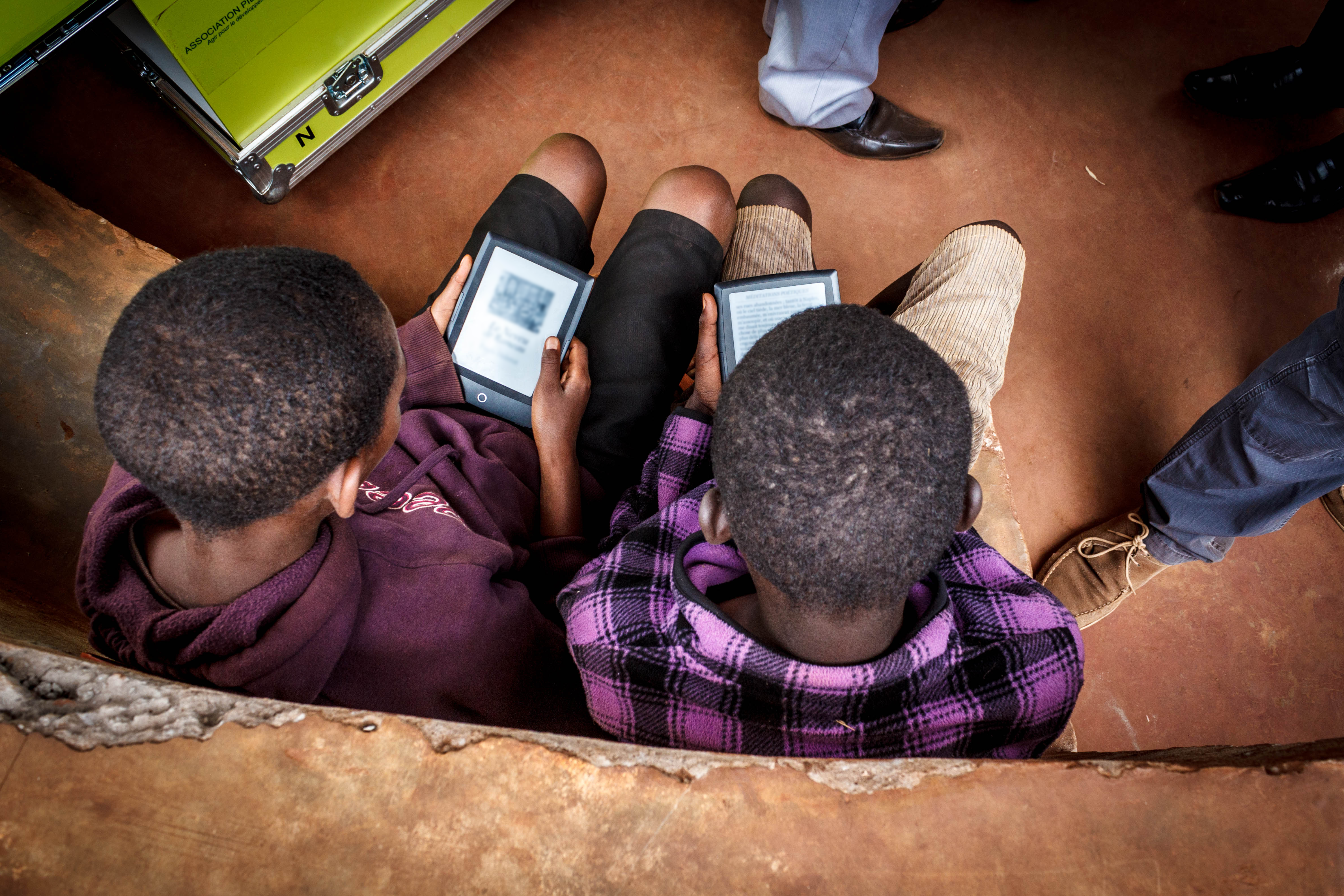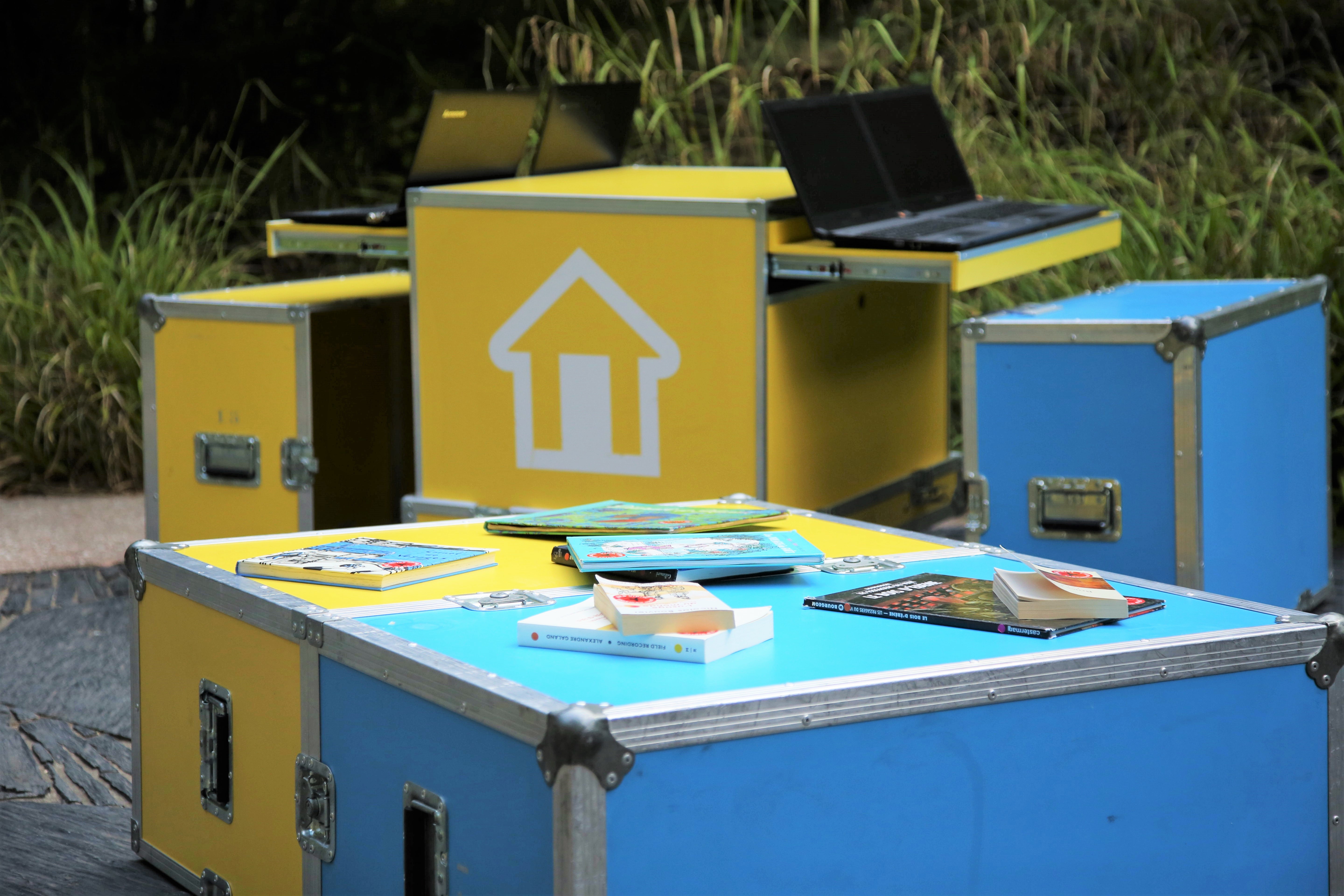Libraries Without Borders: access to education everywhere

“He who masters the book masters education”, said Jules Ferry. However, according to Libraries Without Borders it is nonetheless necessary to choose the books carefully to ensure they will offer the best education. Indeed, this seemed obvious to Patrick Weil (historian, Senior Research Fellow at the National Centre for Scientific Research (CNRS, France) and founding chairman of Libraries Without Borders) and Jérémy Lachal (Executive Director of Libraries Without Borders), who considered that book donation was a totally unsuitable practice in need of reinvention.
Edouard Delbende, Director of Development and Communication, explains this rather bleak picture: “There were a number of charities that collected tonnes of books from the general public. However, often people got rid of books they no longer wanted and you ended up with books that were out-of-date, in poor condition and irrelevant”. Therefore, in 2007 Libraries Without Borders was launched, with very strict specifications regarding the quality, subject and recency of books. The non-profit deals directly with institutions, publishers and distributors who have to manage returns and unsold items, as well as libraries, which donate a part of their catalogues.
The Libraries Without Borders tool box
The organisation’s primary missions concern access to culture, which becomes essential once health, food and housing needs are met.The first tool offered by Libraries Without Borders is the “Ideas Box”, a pop-up multimedia centre and portable library that can be set up in just 20 minutes. With this kit, which comes in the form of a large coloured box, a 100 m2 cultural space can be created just as easily in a refugee camp in Bangladesh, on the streets of Burundi or at the foot of a tower block in the northern districts of Marseille. Once they are open, these colourful boxes offer access to printed books, of course, but also to a cinema, e-readers, computers, cameras, board games and more."Therefore, inside the box, everything is adapted not only to the language, but also to criteria including the age groups targeted and subjects specific to that population." says Edouard Delbende.
Today we work in more than 35 languages to roll out our projects all over the world.
Edouard Delbende, Director of Development and Communication
Libraries Without Borders also provides other tools, like the “Ideas Cube”, a small box which creates a local Wi-Fi network and which stores a terabyte of content selected by the non-profit. For example, in Burundi, hospital staff can be trained thanks to videos stored on the device. This local network is also accessible to patients and gives them access to practical information about maternal and child health or HIV, for example.
Finally, the non-profit’s latest project, “Kajou” cards, comes in the form of micro-SD cards that slip easily into a telephone and which allow access to large quantities of offline content. They are used within the framework of the “Passe ton bac” project to help young people pass their school exams, supported in Senegal by Societe Generale’s The Future Is You Foundation. One thousand sixth-form students have benefited from Kajou micro-SD cards which contain all the content they need to enable them to succeed in their studies and prepare themselves for higher education.
This project is just another example of the ability of Libraries Without Borders teams to be reactive and to select and adapt the best content, enabling the organisation to accomplish its missions.

